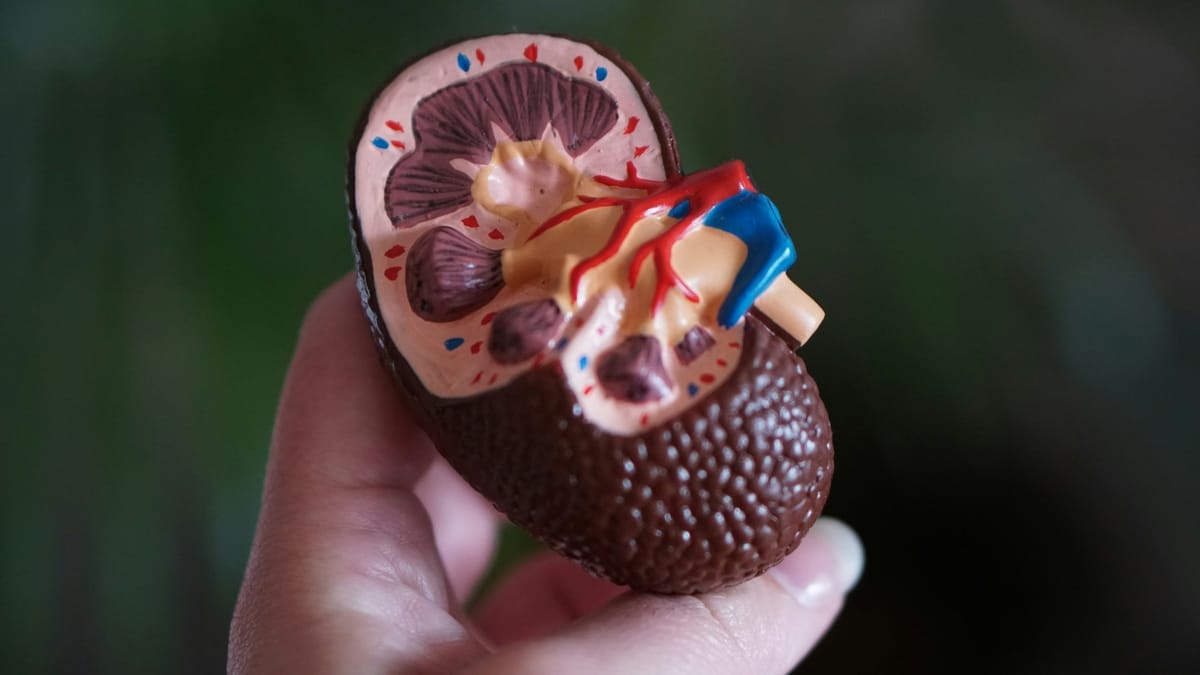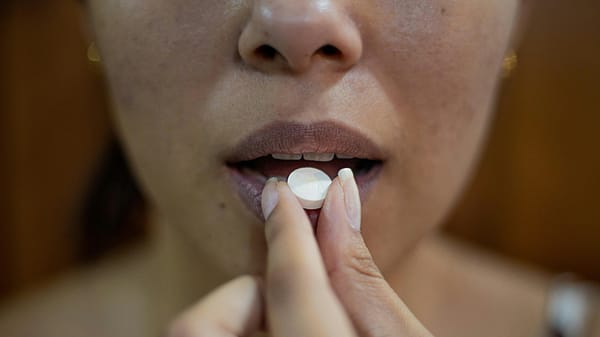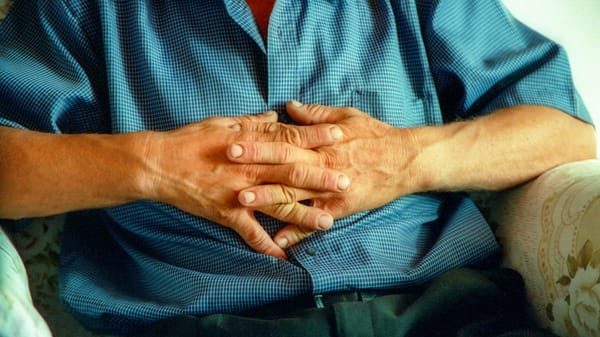Preventing Kidney Stones Naturally: Diet and Lifestyle Strategies for Lasting Relief
Imagine the sudden, sharp pain of a kidney stone flare-up, a distressing experience that often comes without warning and disrupts life. But what if you could significantly reduce the risk of this painful condition through simple, natural changes in your daily habits?

Imagine the sudden, sharp pain of a kidney stone flare-up, a distressing experience that often comes without warning and disrupts life. But what if you could significantly reduce the risk of this painful condition through simple, natural changes in your daily habits? This guide offers proven strategies rooted in science to help you take control of your kidney health and prevent stones before they start.
Kidney stones are more than just painful, they can be a recurring burden that affects quality of life and overall well-being. Fortunately, research in urology and nutrition reveals that many cases of kidney stones can be prevented naturally through mindful lifestyle choices. Dehydration and dietary factors, particularly excessive sodium and imbalanced mineral intake, are major contributors to stone formation. By strategically increasing hydration to 2-3 liters per day, individuals can dilute minerals that form stones, while dietary choices like including calcium-smart foods such as dairy and leafy greens help bind oxalates rather than restricting them unnecessarily. The power of citrate from lemon-infused water also stands out as a natural inhibitor of crystal formation.
This comprehensive guide breaks down these scientific insights into practical tips, including a low-oxalate meal plan, symptom checklist, and lifestyle modifications such as movement to reduce recurrence risk by up to 50 percent. Beyond physical health, it acknowledges the emotional frustration kidney stone sufferers face and offers tools for lasting self-management. Whether you are at risk or already coping with kidney stones, adopting these natural prevention tactics can transform your approach to kidney health, empowering you to live with greater confidence and relief. This article is rich with expert advice and actionable steps that align with chronic wellness and nutrition science to support a stone-free life.
Hydrate Strategically and Eat Calcium-Smart to Prevent Kidney Stones
Proper hydration and diet are essential steps in reducing the risk of kidney stones. Drinking around 2 to 3 liters of fluids daily is widely recommended and helps dilute the minerals and salts in the urine that can form stones. Keeping urine less concentrated makes it harder for crystals to develop and aggregate into stones. Paying attention to the color of your urine can be a simple way to monitor hydration levels; aiming for pale yellow or clear urine is a good target. Water is the best fluid for prevention, but other drinks like tea and coffee also contribute. It's important to increase fluid intake when the weather is hot or during physical activity to compensate for fluid loss through sweat.
Regarding diet, maintaining a calcium-smart approach is key. Many people mistakenly think that reducing calcium intake is necessary to prevent stones, but eating enough calcium-rich foods actually helps by binding oxalates in the intestines and reducing their absorption, oxalates being one of the compounds that can cause stones when concentrated in urine. Dairy products and green leafy vegetables are good sources of calcium and shouldn't be avoided unless recommended specifically by a healthcare provider. On the other hand, limiting sodium intake is important because high salt consumption increases calcium excretion via urine, thus raising the risk of stone formation.
Take into account the following:
- Drinking sufficient water daily helps keep urine diluted and lowers stone risk.
- Urine color is a practical hydration indicator, keep it light.
- Calcium from foods like dairy and greens is beneficial, as it binds oxalates.
- Reducing salt in the diet helps avoid excess calcium loss through urine.
- Avoid sugary drinks and excess animal protein to further reduce risk.
Through these balanced lifestyle habits, moderate hydration and thoughtful calcium intake, many people can effectively reduce their chances of kidney stones without drastic diet changes. This approach emphasizes practical, science-backed guidance for maintaining kidney health over the long term.
Lemon Power: How Citrate from Citrus Helps Prevent Kidney Stones
Citrus fruits, especially lemons and limes, offer more than a refreshing flavor, they are naturally rich in citrate, a compound known to reduce the risk of kidney stone formation. Citrate works by binding with calcium in the urine, forming a soluble complex that prevents calcium from combining with oxalate and forming stones. It also helps maintain an optimal urine pH, making the environment less favorable for crystal growth. Low levels of urinary citrate, known as hypocitraturia, are one of the most common risk factors in individuals prone to calcium-based kidney stones, affecting nearly 60 percent of these patients.
Lemon juice is an accessible, natural source of citrate. Drinking half a cup of lemon juice concentrate mixed with water daily, or the juice of two fresh lemons, can increase urinary citrate levels and lower stone risk without raising oxalate levels. This small addition to a hydration routine offers similar benefits to potassium citrate supplements but in a gentler, food-based form. Moreover, a simple mix of lemon or lime juice diluted in about two liters of water provides a low-calorie and effective approach to kidney stone prevention while avoiding the excess sugar found in commercial lemonades.
Other citrus fruits like oranges and grapefruits also contain citrate, though lemons contain it in the highest concentrations. Integrating these fruits into the diet can support kidney health alongside other preventative habits such as maintaining hydration and moderating sodium intake. However, it’s best to avoid heavily sweetened juices, as extra sugars can counteract the benefits and increase overall kidney stone risk.
Take into account the following takeaways:
- Citrate binds to calcium, reducing calcium oxalate crystal growth.
- Lemon juice naturally increases urinary citrate and helps maintain ideal urine pH.
- The optimal amount is about 120 ml of lemon juice diluted in 2 liters of water daily.
- Sugar-free or freshly squeezed lemonade is preferred over sweetened versions.
Used regularly, citrus-based hydration provides a practical, natural way to complement broader kidney stone prevention strategies.
A Stone-Free Diet Chart: 7 Daily Meal Ideas for Kidney Health
Maintaining a balanced diet is essential for preventing kidney stones, and having practical meal ideas can make this easier to follow. A "Stone-Free Diet Chart" offers a simple way to plan your meals across the week with foods that promote kidney health by being low in oxalates and sodium, while providing adequate calcium and hydration. Below is a sample outline of seven days of meals designed to support stone prevention naturally.
Start your mornings with kidney-friendly breakfasts such as oatmeal with low-fat milk and berries, or Greek yogurt with fresh fruit and granola. For snacks, consider options like apple slices with almond butter or carrot sticks with hummus—these provide fiber and nutrients without unnecessary sodium or oxalates.
Lunches and dinners focus on fresh, wholesome foods including quinoa salads with grilled chicken, lentil soup with whole-grain bread, or baked salmon with steamed broccoli and brown rice. Incorporating leafy greens such as kale or spinach in moderation is supported by pairing calcium-rich foods that reduce oxalate absorption. Avoid processed and canned foods high in sodium, and aim to drink plenty of water or infused lemon water to help dilute urine minerals.
Here are a few tips for making meal planning easier:
- Choose fresh fruits and vegetables and avoid packaged, salty snacks.
- Include lean protein like poultry or fish rather than red meat.
- Use herbs and citrus juices for seasoning instead of salt.
- Plan meals to balance calcium and oxalate-rich foods together.
- Stay hydrated throughout the day, aiming for 2-3 liters of fluids.
For detailed recipe ideas and nutritional guidance tailored to kidney stone prevention, a nutrition hub dedicated to renal health offers extensive resources and sample meal plans. This additional support can help maintain variety and enjoyment in your diet while keeping it kidney-friendly.
By following a structured diet chart like this, you can take proactive steps to reduce kidney stone risk, support overall kidney function, and enjoy a range of tasty, nutritious meals throughout the week.
Lucinda’s Story: A Wake-Up Call on the Importance of Kidney Health and Prevention
Lucinda’s story left a lasting impression on everyone who heard it. A woman in her early forties, she never imagined that a routine treatment for a small kidney stone could lead to such a devastating outcome. One moment, she was in her home, battling discomfort from what seemed like a minor issue. The next, she was rushed to the hospital, fighting for her life. Her infection turned septic, and despite the diligent efforts of her medical team, she lost her arms from below the elbows and both legs from the knees down.
Her journey is a stark reminder of how quickly kidney problems can escalate if not properly managed. Lucinda’s experience highlights a crucial point: preventable kidney issues, like stones, can become life-threatening if ignored or left untreated. Her resilience and positivity amid such tragedy inspire many to prioritize hydration, diet, and early medical intervention.
Lucinda now advocates for awareness around kidney health, emphasizing the importance of listening to your body, staying hydrated, and seeking medical advice when symptoms arise. Her story underscores that even routine issues require attention, because, as she shows us, slips in prevention can lead to lifelong consequences. While her life has forever changed, her attitude remains hopeful. She now dedicates herself to educating others so they might avoid similar heartbreak and take better care of their kidneys. Her story is a powerful call to action, reminding us all that health is priceless, and prevention truly matters.
Your Top Questions Answered
- What are the most effective lifestyle changes to prevent kidney stones?
Increasing fluid intake to produce at least 2 to 2.5 liters of urine daily, limiting salt and animal protein intake, and maintaining a balanced diet rich in fruits and vegetables are crucial.
- How much water should I drink daily to prevent kidney stones?
Most articles recommend drinking about 2 to 3 liters of water daily or enough to produce around 2 liters of urine, which significantly reduces the risk.
- Can dietary modifications help prevent recurrence of kidney stones?
Yes, a diet low in sodium, with adequate calcium intake from foods, and limiting oxalate-rich foods can help prevent future stones.
- What role does citrate from citrus fruits play in kidney stone prevention?
Citrate binds calcium in urine, preventing crystals from forming and reducing the development of stones.
- Are there specific foods to avoid if I have a history of kidney stones?
High-oxalate foods such as spinach, nuts, tea, and chocolate are often advised to be limited, depending on the type of stones.
- What medications might be used for preventing kidney stones?
Medications like potassium citrate and thiazide diuretics can help prevent certain types of stones, as recommended by healthcare providers.
- How important is monitoring and testing?
A 24-hour urine collection and metabolic evaluation help identify specific risk factors and tailor prevention strategies effectively.
- Can dehydration increase the risk of kidney stones?
Absolutely, dehydration concentrates urine, making crystal formation more likely; staying well-hydrated is essential.
- Does reducing animal protein intake help?
Yes, reducing intake of meat, eggs, and seafood can help lower uric acid and calcium levels in urine, decreasing stone risk.
- What general diet tips support kidney health and prevent stones?
A diet high in fiber, with adequate calcium, low in sodium and oxalates, and balanced with plenty of fluids, best supports kidney health.
Key Takeaways
- Drink 2 to 3 liters of fluids daily—mainly water—to dilute minerals in the urine and reduce the risk of stone formation.
- Use urine color as a hydration indicator; aiming for pale yellow or clear urine suggests adequate fluid intake.
- Incorporate calcium-smart eating habits by including dairy and leafy greens, which bind oxalates in the gut and help prevent stones.
- Avoid excessive sodium intake, as salt increases calcium excretion in urine, raising stone risk.
- Citrate from citrus fruits like lemons naturally inhibits kidney stone formation by preventing crystal growth and maintaining urine pH balance.
- Drinking lemon juice mixed with water daily can increase urinary citrate levels and aid in stone prevention.
- Follow a balanced "Stone-Free Diet Chart" with meals low in oxalates and adequate calcium, incorporating lean proteins, whole grains, fruits, and vegetables.
- Reduce consumption of animal proteins, sugary drinks, and high-oxalate foods (e.g., spinach, nuts, chocolate) that contribute to stone formation.
- Monitor lifestyle factors such as heat exposure and sweating, increasing fluid intake accordingly to prevent dehydration.
- Kidney stone prevention is best supported through sustained, simple lifestyle and dietary changes rather than drastic restrictions, and medical guidance can personalize these approaches.
References
https://pmc.ncbi.nlm.nih.gov/articles/PMC10201681/
https://pubmed.ncbi.nlm.nih.gov/36906146/
https://www.aafp.org/pubs/afp/issues/2013/1101/p609a.html
https://onlinelibrary.wiley.com/doi/10.1155/2018/3068365
https://pmc.ncbi.nlm.nih.gov/articles/PMC9959749/
https://www.aafp.org/pubs/afp/issues/2019/0415/p490.html
https://jamanetwork.com/journals/jamanetworkopen/fullarticle/2822722
https://www.sciencedirect.com/science/article/pii/S2161831323002715
https://www.sciencedirect.com/science/article/pii/S2405805X24000309
https://www.sciencedirect.com/science/article/pii/S2772753X24001473
https://www.kidney.org/kidney-topics/kidney-stone-diet-plan-and-prevention
https://www.nhs.uk/conditions/kidney-stones/prevention/
https://newsnetwork.mayoclinic.org/discussion/diets-higher-in-calcium-and-potassium-may-help-prevent-recurrent-symptomatic-kidney-stones-mayo-clinic-study-finds/
https://utswmed.org/medblog/kidney-stone-prevention/
https://www.utsouthwestern.edu/newsroom/articles/year-2023/june-prevent-kidney-stones.html
This article was written by Ariadna Paniagua, an experienced writer and editor for several institutions, papers, and websites.




